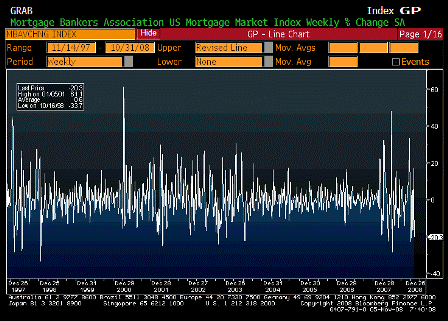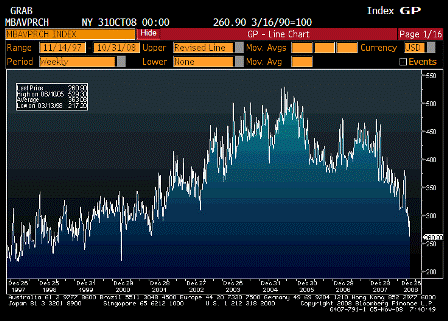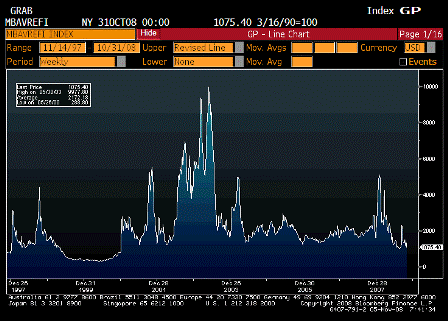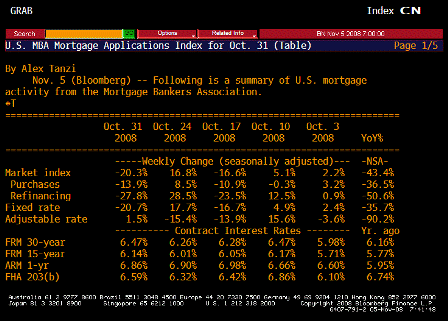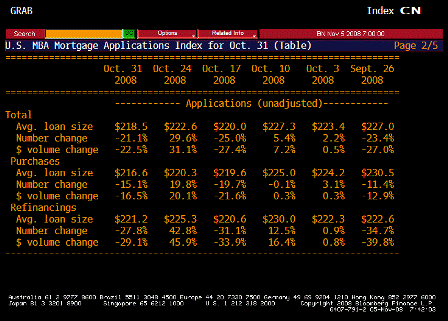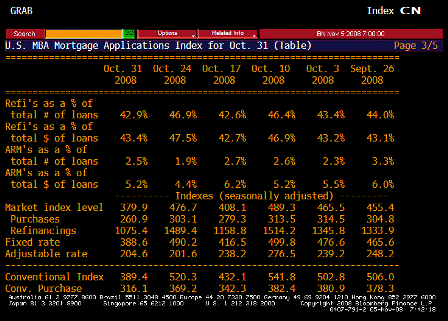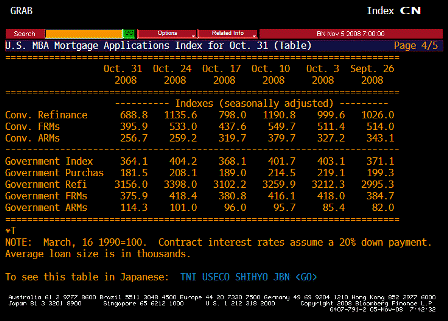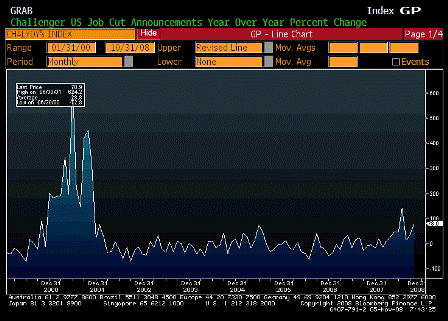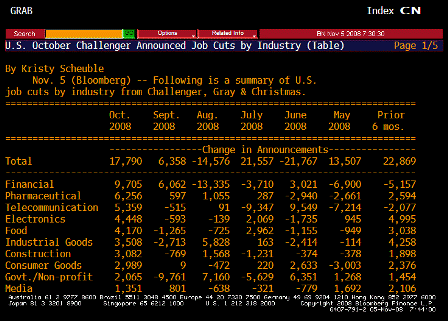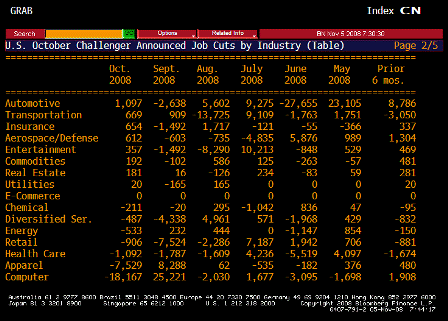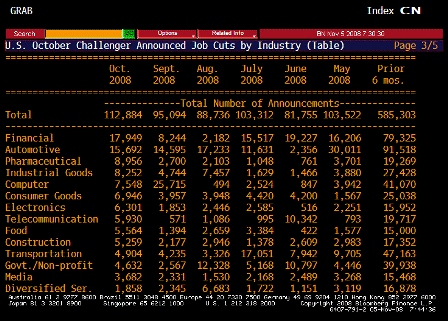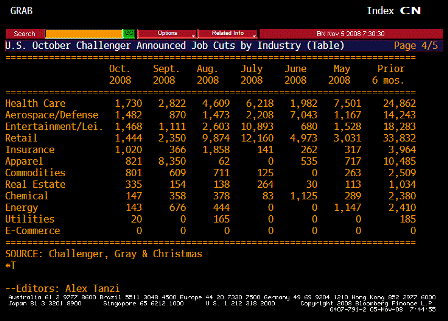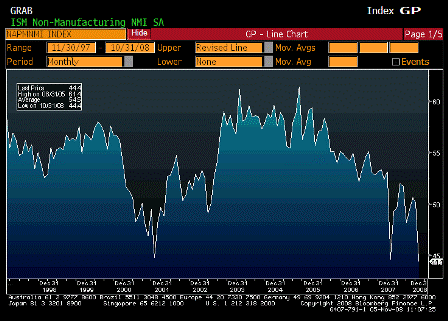- Nonfarm Productivity QoQ (Released 8:30 EST)
- Nonfarm Productivity TABLE 1 (Released 8:30 EST)
- Nonfarm Productivity TABLE 2 (Released 8:30 EST)
- Unit Labor Costs QoQ (Released 8:30 EST)
- Unit Labor Costs ALLX (Released 8:30 EST)
- Initial Jobless Claims (Released 8:30 EST)
- Continuing Claims (Released 8:30 EST)
- Jobless Claims ALLX (Released 8:30 EST)
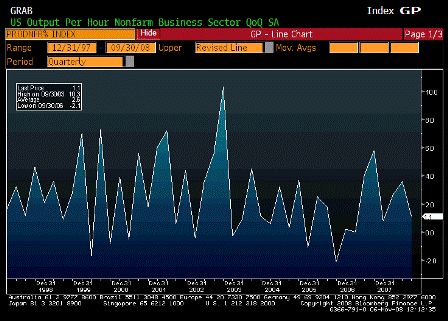
Nonfarm Productivity QoQ (3Q P)
| Survey | 0.7% |
| Actual | 1.1% |
| Prior | 4.3% |
| Revised | 3.6% |
Better than expected but slipping a bit.
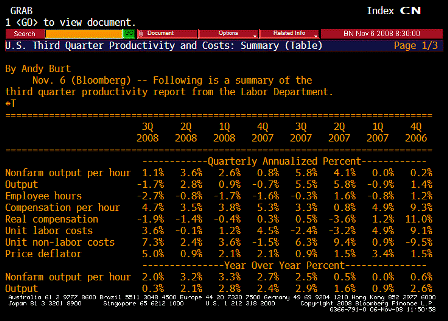
Nonfarm Productivity TABLE 1 (3Q P)
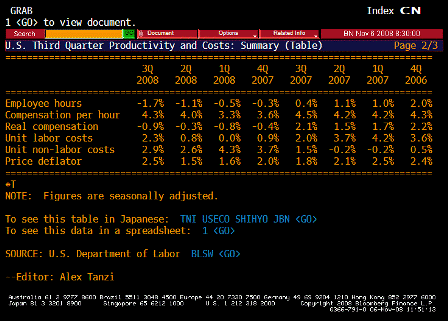
Nonfarm Productivity TABLE 2 (3Q P)
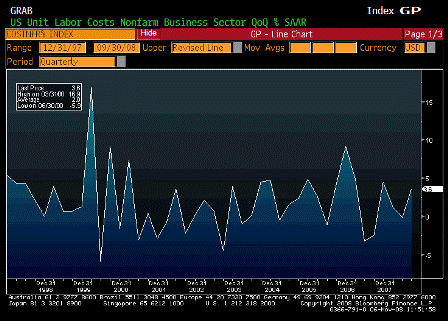
Unit Labor Costs QoQ (3Q P)
| Survey | 3.0% |
| Actual | 3.6% |
| Prior | -0.5% |
| Revised | -0.1% |
Worse than expected but still reasonable.
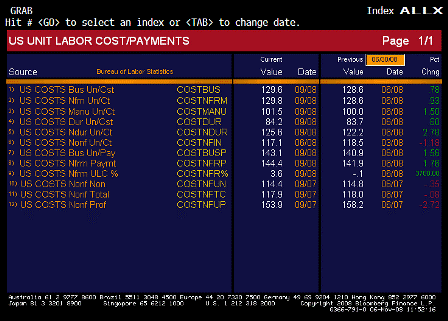
Unit Labor Costs ALLX (3Q P)
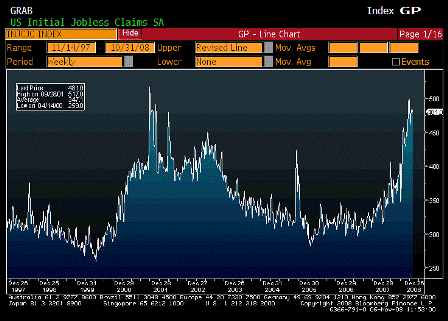
Initial Jobless Claims (Nov 1)
| Survey | 477K |
| Actual | 481K |
| Prior | 479K |
| Revised | 485K |
About at recession levels.
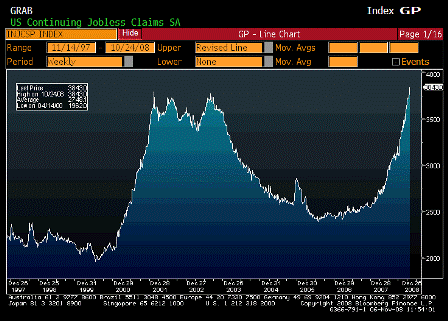
Continuing Claims (Oct 25)
| Survey | 3743K |
| Actual | 3843K |
| Prior | 3715K |
| Revised | 3721K |
Also looking like recession levels.

Jobless Claims ALLX (Nov 1)
Karim writes:
- Initial claims fall 4k to 481k, but prior week revised up 6k to 485k (4wk avg 477k)
Real story is latest jump in continuing claims, from 3721k to 3843k (4wk avg 3754k) - Higher continuing claims tied to longer duration of unemployment and in turn lower wage pressures
- Now look for payrolls to exceed -300k tomorrow; would be consistent with across the board weaker-than-expected data for past month.
[top]



